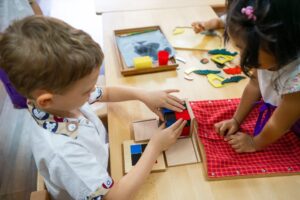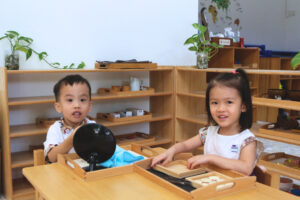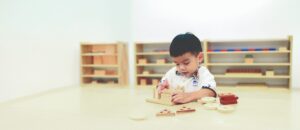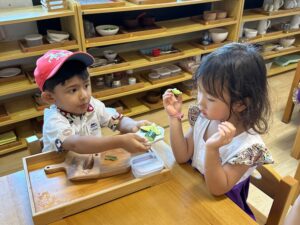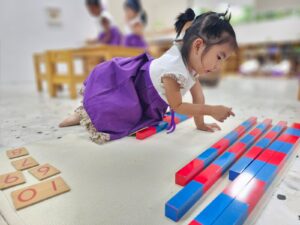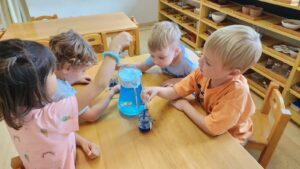Supporting Children’s Growth at House on the Hill and Beyond.
Independent play is one of the most important pillars of early childhood development. It’s a time when children explore their creativity, build confidence, and develop critical problem-solving skills — all while learning to self-regulate emotions and navigate social interactions. But as parents and educators, knowing when to step in and when to let children play independently can be a delicate balancing act.
At House on the Hill Montessori Preschool, we believe in fostering children’s independence through a thoughtfully prepared environment, expert guidance, and attentive support. Our approach not only nurtures children’s natural curiosity but also respects their individual rhythms and needs.
Here’s how we do it — and how you can bring these principles into your home life to support your child’s growth.
What Independent Play Looks Like at House on the Hill
Our Montessori philosophy emphasises child-led learning and the importance of the three-hour work cycle — an extended period when children engage deeply with chosen activities. During this time, our trained teachers observe quietly from the sidelines, stepping in only when a child seeks guidance or faces a challenge beyond their current ability.
When do our teachers step in?
- Extending creativity or language development in their play
- To gently scaffold new skills or concepts when a child is ready to learn but hasn’t yet mastered them.
- To offer emotional support if a child is frustrated or overwhelmed, helping them calm down and regain focus.
- To mediate social situations, encouraging sharing, turn-taking, and respectful communication.
When do we let children play independently?
- When they are fully engaged in their chosen activity, exploring and learning at their own pace.
- When they are practising problem-solving, creativity, or motor skills without distress or confusion.
- When they are experimenting with social dynamics, negotiating friendships, or simply enjoying solo play.
Our prepared environment plays a huge role in this. Each classroom is carefully designed with Montessori materials that invite exploration and are accessible to children, encouraging autonomy while providing subtle challenges. Outdoor spaces further stimulate gross motor skills and imaginative play, all under the watchful yet unobtrusive eyes of our educators.
How Parents Can Support Independent Play at Home
We understand that many parents want to foster independence but sometimes struggle with knowing when to intervene and when to step back.
Here are some practical tips inspired by our House on the Hill approach:
- Create a Child-Friendly Space: Just like our classrooms, create an area at home with accessible toys and materials that invite open-ended play — blocks, art supplies, puzzles, or simple household objects. Let your child choose what to play with.
- Encourage your child to work on a challenge or project independently before seeking help from you.
- Observe and Wait: Resist the urge to jump in immediately. Watch your child play for a few minutes before offering help. This allows them to try out ideas and solutions on their own.
- Offer Support, Not Solutions: When your child struggles, ask open-ended questions like “What do you think you could do next?” or “How else might you try?” instead of giving direct answers.
- Encourage Problem-Solving: If your child asks for help, guide them gently toward figuring it out themselves rather than solving it for them.
- Respect Their Play Rhythm: Some days your child may want to play independently; other times, they’ll want your company. Honour their needs without forcing interaction.
- Model Patience and Calmness: Your presence sets the tone. Being calm and patient creates a safe space for exploration and mistakes.
- Celebrate Effort and Initiative: Praise your child’s attempts, creativity, and persistence, reinforcing the value of learning through play.
Supporting Families Together
At House on the Hill, we view the partnership between educators and families as vital. We regularly share observations and tips with parents to help mirror the nurturing environment we provide at school. Our parent workshops and newsletters often include guidance on encouraging independent play and building confidence, helping families create consistency that benefits the child’s overall development.
By supporting children’s independence both in school and at home, we equip them with essential skills for lifelong learning and emotional resilience. Independent play is not about leaving children alone — it’s about trusting them enough to explore, make mistakes, and grow, knowing help is always available when truly needed.
Would you like to learn more about House on the Hill? Book a tour or get in touch with us today!

